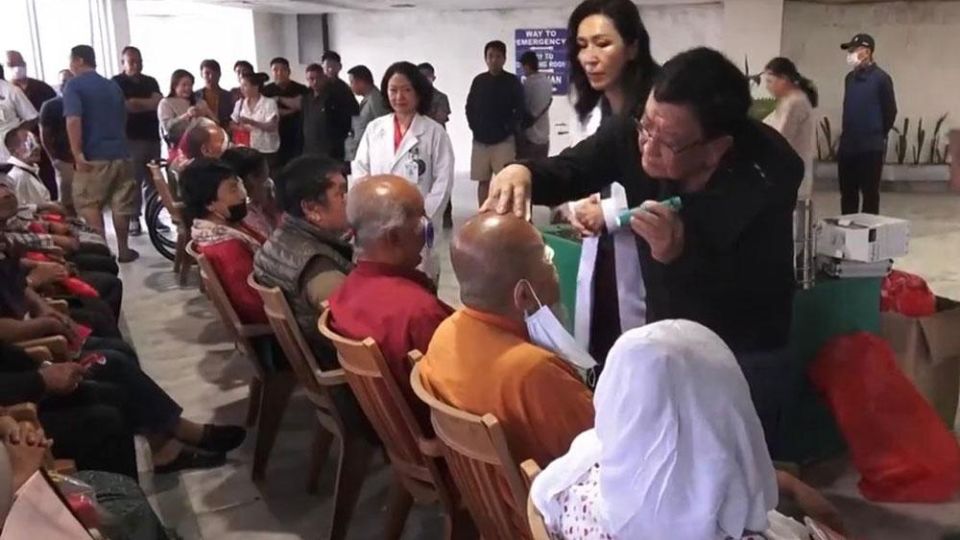April 1, 2025
THIMPHU – For 65-year-old Hom Raj Ghalley, a resident of Gelephu, the world had become a blur. Once able to read and drive with ease, he struggled with vision loss due to cataract, which made even everyday tasks difficult and dangerous.
Hom Raj Ghalley underwent surgery on his left eye last January, while his right eyesight was restored during the recent international eye camp in Gelephu. He can see clearly once again.
“Now I can read at a distance and drive again, which I had to stop immediately when I started seeing two vehicles instead of one and multiple lights from oncoming vehicles,” he said.
Hom Raj Ghalley is one of the 303 patients—147 men and 156 women—who regained their eyesight during a week-long Outreach Microsurgical Eye Camp held in Thimphu and Gelephu.
The camp, which concluded on March 27 at the Gelephu Central Regional Referral Hospital (CRRH), provided sight-saving surgeries to 99 patients in Thimphu and 204 in Gelephu.
Another beneficiary, 59-year-old Tara Maya Tirwa from Gelephu, struggled with blurred vision for nearly eight years, making it difficult for her to recognise people. “Now I can see clearly. When I visited the hospital, the doctors found it wasn’t severe and recommended the international eye camp services,” she said.
The international eye camp was led by Dr Sanduk Ruit, a globally acclaimed ophthalmologist, and his team from the Tilganga Institute of Ophthalmology in Nepal, in collaboration with the Ministry of Health. The initiative was supported by the Gyalyum Kesang Choden Wangchuck National Eye Centre and Karuna Shechen.

During the international eye surgery camp, a team of expert surgeons from Nepal, Singapore, Switzerland, and Japan conducted high-quality surgeries, clearing cataract backlogs, and training local doctors to sustain and advance the programme.
Dr Dechen Wangmo, a paediatric ophthalmologist at the Jigme Dorji Wangchuck National Referral Hospital (JDWNRH), said the ophthalmic department aims to ensure that every patient receives quality surgery on par with international standards, not just in numbers.
“Cataracts affect everyone as they age. Some patients may develop glaucoma, which increases eye pressure and can cause permanent blindness,” she said, encouraging those experiencing blurry vision to visit their nearest eye health centre for a cataract evaluation.
Cataracts are most common among the elderly, with patients ranging in age from 40 to 88 years old. Cataract surgery is regarded as one of the most cost-effective treatments globally.
Dr Sanduk Ruit said blindness reduces authority and the capacity to be part of the family. “Family income decreases, the burden increases, and life expectancy falls. However, once sight is restored, all of this is reversed. Life expectancy improves, and family dynamics improve,” he said.
Dr Sanduk Ruit, who visited Bhutan about 25 years ago at the invitation of Her Majesty the Royal Grandmother, Gyalyum Kesang Choden Wangchuck, has since been providing eye care services to Bhutanese.
“The success rate of the surgery performed in Bhutan is close to 95 percent, which is almost comparable to the best success rates worldwide,” Dr Sanduk Ruit said. “I would confidently say that we, along with local doctors, are providing world-class surgeries, even in challenging situations.”
This was the first international eye camp in Gelephu, aimed at enhancing the CRRH’s capacity so it can eventually match JDWNRH in providing specialised eye care and meet the demand of the expected population influx in the future.
Currently, CRRH has three ophthalmologists offering cataract services in the region.
“We schedule eye services on Mondays and Wednesdays, but many are unaware of the service availability,” said Dr Choeda Gyeltshen, medical superintendent of CRRH.
Leading up to the camp, patients from Sarpang and neighbouring districts were screened over two months and scheduled for surgery. The initiative also sought to encourage those resistant to cataract surgery to seek treatment.


